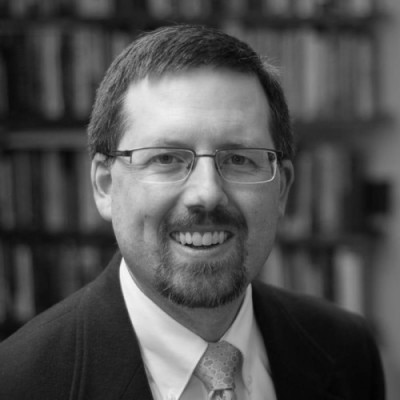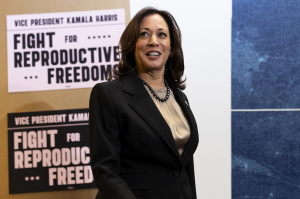President Biden should follow Lincoln’s lead

On January 20th, President-elect Joe Biden will become President Joe Biden when he takes the oath of office. If he follows the lead of most of his predecessors (going back to George Washington), he’ll do so on an open Bible. The seriousness of the moment, the public trust invested in the executive branch, seems to demand an appeal to the divine. Then, he’ll have an opportunity to address the nation to set a tone for his administration. The best inaugural addresses connect to the broader American tradition, and in our moment, the new President could do much worse than following Abraham Lincoln’s lead.
Inaugural addresses over the past two centuries have sought to speak to specific moments while connecting to long-standing American principles. Addresses aim to set a clear tone, like Franklin Roosevelt’s declaration, taking office during the Great Depression, “the only thing we have to fear is fear itself.” Presidents may attempt to communicate an approach to the problems faced, as when Ronald Reagan asserted, “In the present crisis, government is not the solution to our problem; government is the problem.” The best call for active response, along the lines of John F. Kennedy’s “Ask not what your country can do for you —ask what you can do for your country.”
These strategies will be in Mr. Biden’s mind as he prepares his address. He begins his presidency confronting both the on-going challenges of COVID-19 and the deep political polarization which has not only strained national unity but broken out into political violence at the Capitol. In light of these problems, Mr. Biden would do well to turn back to President Lincoln’s 1861 First Inaugural.
Lincoln had just come through a hotly contested and divisive election not unlike last November’s. Lincoln carried the standard for the upstart Republican party. The Democratic party, formerly a national party, had itself fractured, nominating two candidates, Stephen Douglas and John C. Breckinridge. John Bell ran on the Constitutional Union ticket.
When the votes were counted, Lincoln had a majority of electoral votes and so achieved the presidency according to constitutional guidelines. This stunned many southerners. They could legitimately claim that they didn’t know anyone who had voted for Lincoln, since the Republican ticket had been denied ballot access across the South. The question of legitimacy swirled.
Lincoln faced more than just hard feelings; he confronted the very real danger of political violence. Southern fire-eaters, once the election returns came in, began laying the groundwork to leave the Union. Their endeavors bore fruit when South Carolina voted to secede. Six other Deep South states would follow them. Lincoln had largely remained silent. His inaugural address was thus his opportunity to speak to a nation on the brink of dissolution. How did he speak to a nation tearing itself apart?
Lincoln addressed his hearers with honesty. He acknowledged differences between the sections, rooted in the legal standing of slavery. He didn’t ignore or paper over those differences, yet he believed the issues could be negotiated carefully. However, Lincoln also was honest in the consequences awaiting the secessionists. Pushing further down their course would elicit a strong response. “I shall have the most solemn [oath] to ‘preserve, protect, and defend’” the government and the Constitution, Lincoln told them, signaling the steps he would take in the days after the ceremony.
Next, Lincoln called for patient reflection. “Think calmly and well,” he cautioned. “Nothing valuable can be lost by taking time.” Rather than “hot haste,” the wiser course facing a divided people was to pause and reflect on consequences. The optimistic predictions among the secessionists represented mere braggadocio. A more realistic, sober assessment would bring the parties back to the table.
Third, Lincoln sought to recreate national unity through reminding his listeners of historical ties, to recover a common identity in a shared history. Although alluded to several times, this theme was front and center in his conclusion: “Though passion may have strained, it must not break our bonds of affection. The mystic chords of memory, stretching from every battlefield, and patriot grave, to every living heart and hearth-stone, all over this broad land, will yet swell the chorus of the Union, when again touched, as surely they will be, by the better angels of our nature.” Lincoln intended these lines — now famous — to evoke a loyalty that could go beyond transient differences to produce long-term concord.
Finally, Lincoln placed the divides within a transcendent framework. The “Almighty Ruler of nations, with his eternal truth and justice” was overseeing the conflict and would render a judgment, according to Lincoln. Disunionists would have to reckon, not only with the consequences of their actions, but with the evaluation of a just God.
The great irony is that Lincoln’s inaugural did not revive America’s better angels. When Lincoln decided to resupply Ft. Sumter in Charleston Harbor, the Confederate batteries opened fire, launching the Civil War. Over the next four years, Americans would slaughter one another, leaving over 600,000 dead and thousands more permanently maimed. President Lincoln lived long enough to see the War end and to issue a call “to bind up the nation’s wounds,” but his efforts would be cut short by an assassin’s bullet.
Yet, Lincoln’s appeal to his countrymen echoes today. Mr. Biden’s Inaugural Address would do well to draw his listeners to the four elements of Lincoln’s. Americans need to look at their differences with honesty, resisting the habit of finding and then magnifying the worst examples of those with whom we disagree. Further, we need to face facts honestly, even if we don’t like them or they don’t confirm our prior assumptions. Second, it might be good to slow down and practice some patient reflection, rather than jumping from one hot take to another. Third, the address could call the country back to a shared purpose, recognizing our connections to an American past. That past is not perfect. It’s marred in significant ways — as Lincoln knew well — but it also has resources in both principles and the many examples of those who called for the country to be better. Finally, this endeavor works best when it is understood that our civic actions are not just for ourselves. Following Lincoln, an appeal to “Him, who has never yet forsaken this favored land” would not be out of order.
Dr. Jonathan Den Hartog is professor of History at Samford University, the author of Patriotism and Piety: Federalist Politics and Religious Struggle in the New American Nation, and a Scholar Advisor for the Faith and Liberty Discovery Center in Philadelphia, Pennsylvania.




























